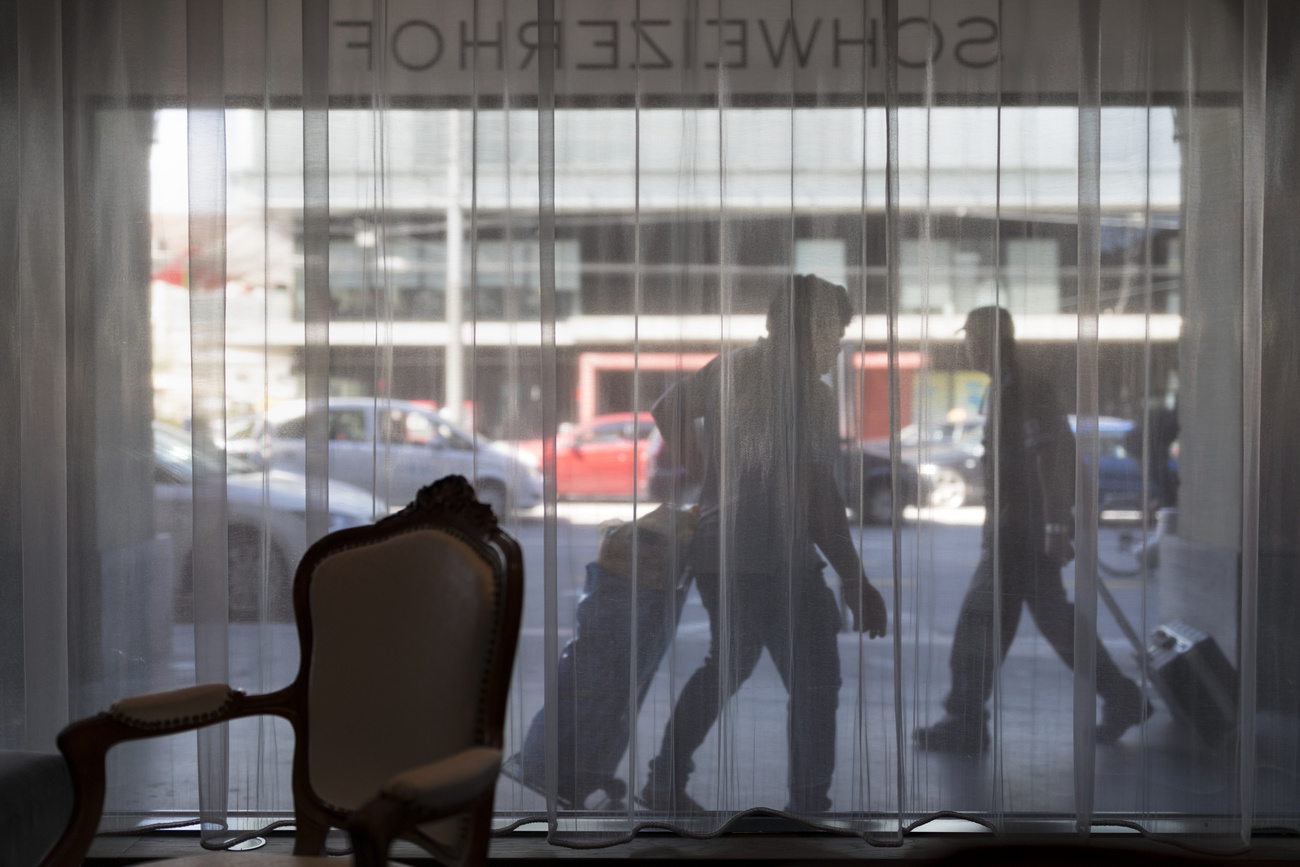
‘Fear of being forced to leave Switzerland is growing’

Many immigrants in Switzerland have been hard hit by the economic crisis caused by the coronavirus pandemic. New regulations mean that many fear taking welfare. It’s a situation that needs to change, says integration expert Francesca Chukwunyere.
In January 2019, the Federal Act on Foreign Nationals and Integration was revised to extend the requirements for granting residence permits. For example, social security offices are obliged to report the names of people who receive benefits to cantonal immigration officials. Depending on an individual’s situation, authorities can decide to withhold annual residence permits or downgrade a permanent residence permit, Chukwunyere explains.
The ethnologist is deputy director of the isaExternal link immigration advisory centre in Bern.
swissinfo.ch: What is currently the greatest concern among foreigners who come to your organisation for advice?
Francesca Chukwunyere: Falling into poverty and the fear of having to leave Switzerland as a result. The pandemic has highlighted and aggravated a problem that has been festering for some time – the amendments to the Federal Act on Foreign Nationals and Integration mean that many people decide against taking welfare because they are afraid that this will put their residence permits at risk.

swissinfo.ch: Who are you talking about exactly?
F.C.: People who are employed on relatively insecure terms. These are the large proportion of the foreign labour force who are in temporary work arrangements, or the so-called “working poor”. So families with a low income which are absolutely reliant on two or three incomes to feed their children.
These people feel the effects of the pandemic two or three times over. They are the first to be made redundant or have their working hours cut. A single mother who is paid by the hour as a cashier, for instance. Or the bricklayer on low wages.
They are migrants who are now afraid of losing their residence permits.
swissinfo.ch: How do they avoid this in the middle of an economic crisis?
F.C.: Some avoid taking any kind of social benefits, so not just direct income support, but also supplementary benefits such as discounts for health insurance or support for childcare for which people on low incomes are eligible.
These payments may be calculated as social welfare in some cantons, although that is not the norm.
This has led to a lot of insecurity among foreigners. They don’t want to do anything wrong or take any risks because for most of them, maintaining the right to stay is their highest priority.
We should not forget that since January 2019, social security offices are obliged to report the names of people who receive social welfare or supplementary benefits to cantonal immigration officials. And depending on an individual’s situation, these authorities can decide to withhold annual residence permits from foreigners, or replace a permanent residence permit with an annual one. The change in the law even affects foreigners who have lived in Switzerland for more than 15 years.
swissinfo.ch: What can your organisation do to ease these concerns?
F.C.: We have to explain time and again what is allowed under the law and what not. However, we are not always sure ourselves what is allowed, because this new law leaves municipalities and cantons a lot of room for manoeuvre. There are circumstances which are not regulated down to the last detail. And the law can be interpreted in diverse ways.
So far, very few cases have been addressed by the Swiss Federal Court. So there is some legal uncertainty for us, too. We aren’t always 100% sure that what we think we have understood is valid. The same goes for colleagues at other advisory centres and social services offices.
swissinfo.ch: What would create more clarity?
F.C.: There will only be clarity when cases come to court. And this is difficult, because if a foreigner takes an immigration authority to court, then he is, in a sense, challenging the state that has taken him in.
We believeExternal link that it is absolutely essential to suspend residence procedures connected to social welfare and the Foreign Nationals Law for the time being, until the crisis caused by the pandemic is over.
In addition to the effects of social welfare on residence permits, Swiss civil law states the following (since 2018): anyone who has received social welfare in the three years directly preceding his application for citizenship or receives social welfare while his application for citizenship is being processed does not meet the required standard of participation in economic life, unless the social welfare is refunded in full (Art.7)
Most of the 26 cantons follow this three-year rule, except for Basel-Country and Thurgau, which have extended it to five years, and Bern, Aargau and Graubünden, which have raised it to 10 years.
Against this legal background, and in view of the economic crisis caused by the pandemic, the federal authorities have advised cantonal immigration authorities to take these extraordinary circumstances into account and ensure that those affected are not disadvantaged by the situation.
On the federal level, a parliamentary initiative presented in June aims to amend the Foreign Nationals and Integration law to prevent people who have been resident in Switzerland for more than 10 years from being forced to leave the country because they are social welfare recipients.
Translated from Spanish

In compliance with the JTI standards
More: SWI swissinfo.ch certified by the Journalism Trust Initiative































You can find an overview of ongoing debates with our journalists here . Please join us!
If you want to start a conversation about a topic raised in this article or want to report factual errors, email us at english@swissinfo.ch.